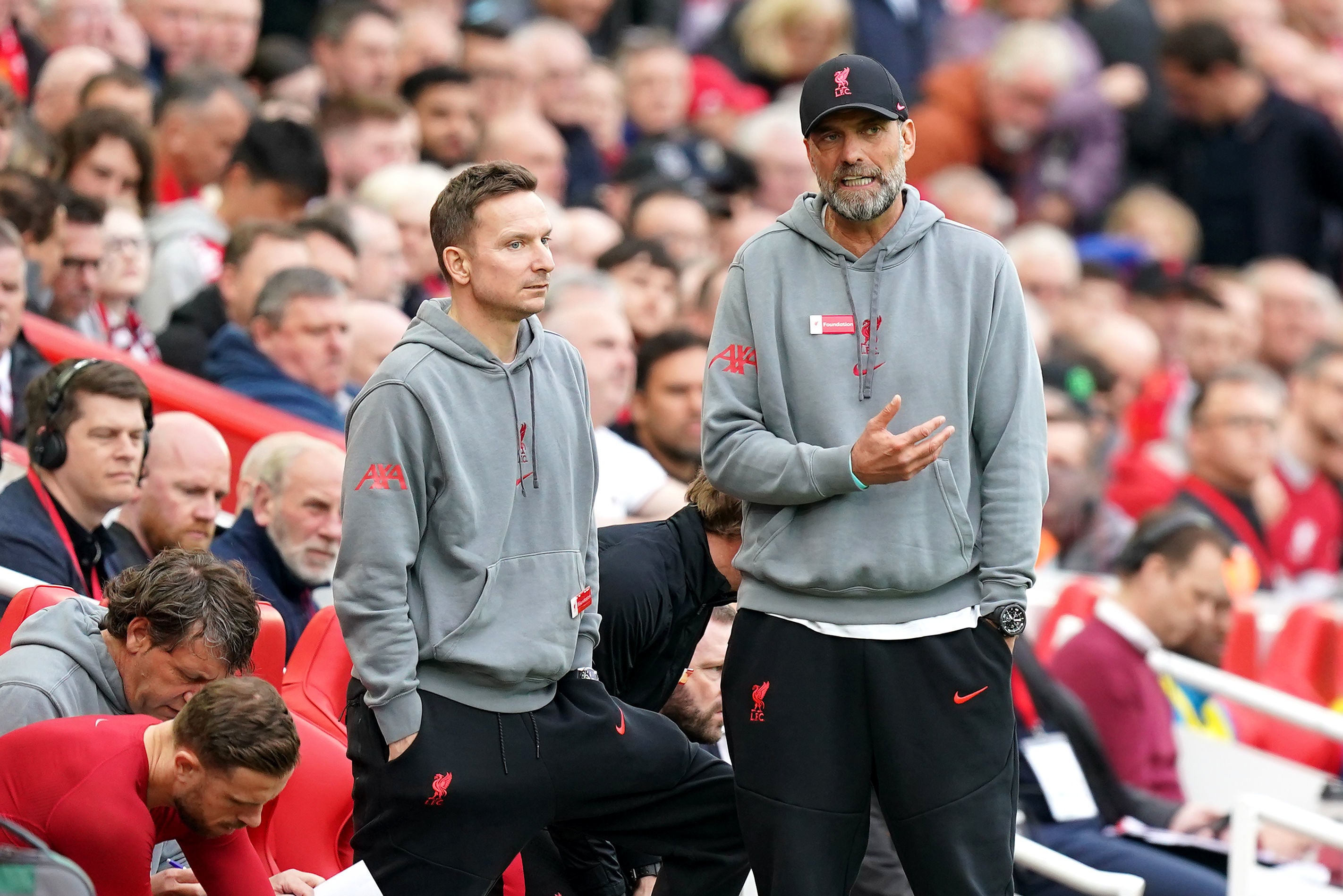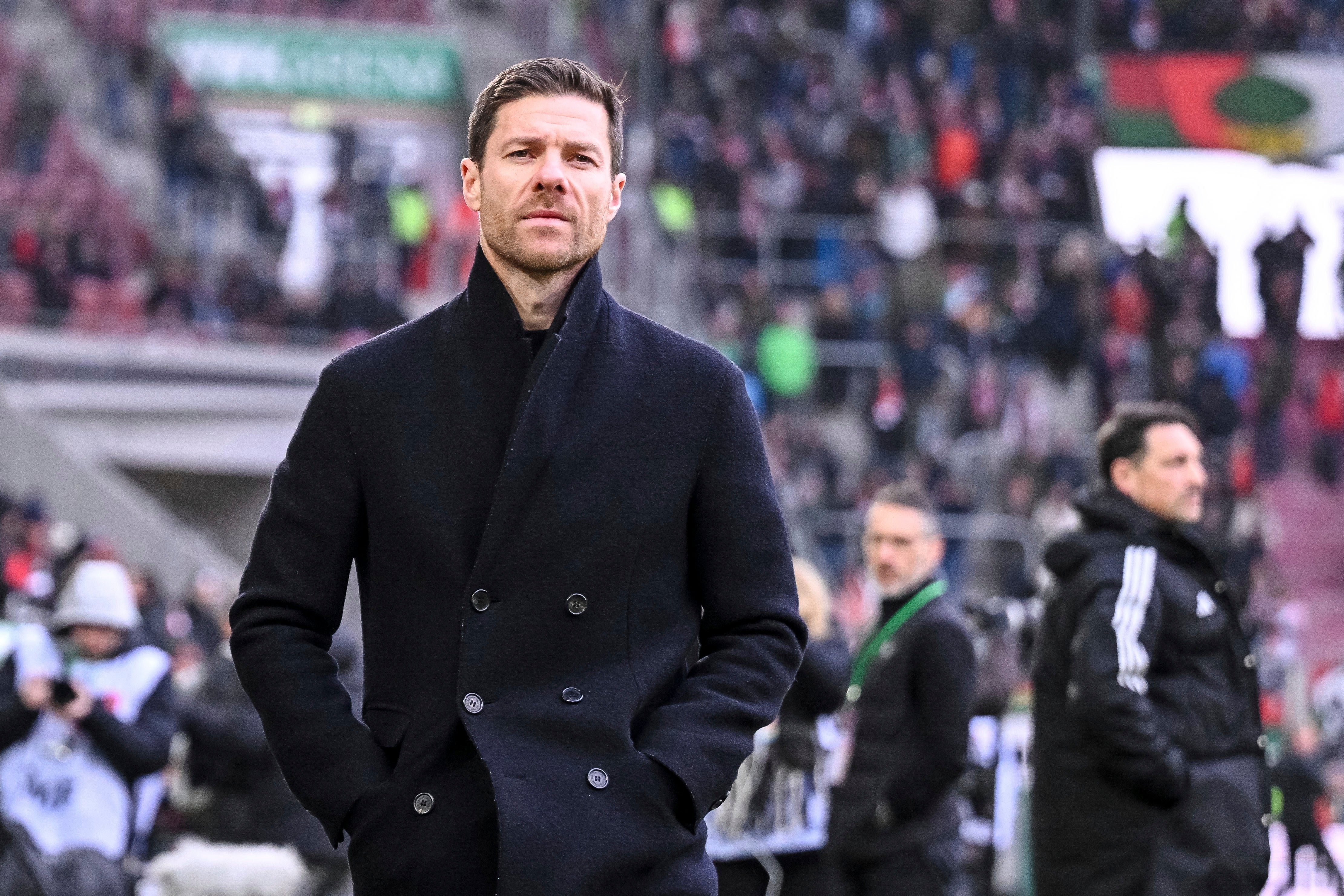The secret to replacing Jurgen Klopp? It’s all about the analytics...
How do you fill the boots of a footballing genius? For Liverpool’s owners and original Moneyballers, Fenway Sports Group, the answer lies in a forensic data-driven approach, which they’ve been finessing for 20 years, explains Richard Jolly


There was a moment when Billy Hogan contemplated the impossible task of replacing the man sat to his right and offered a reminder that Liverpool’s owners, Fenway Sports Group, were football’s original Moneyballers. They were so fixed on the idea that John W Henry had tried to hire Billy Beane, the poster boy for baseball’s statistical approach to recruitment, to take charge of the Boston Red Sox. Some two decades later and on the other side of the Atlantic, Hogan reflected on the search for Jurgen Klopp’s successor.
“The way we operate as a football club is to make sure we look at all the information and all the data, we’ve done our proper due diligence, and then make a decision,” said Liverpool’s CEO. The charisma Hogan referenced can feel like Klopp’s most obvious quality now: the outgoing manager is very much a people person. Yet he is also a data darling: he famously steered Borussia Dortmund to the 2013 Champions League final on a wage bill less than that of Queens Park Rangers, who were relegated from the Premier League that season.
Liverpool have prospered at the numbers game under Klopp, perhaps winning less than they might have but punching above their financial weight. Following the numbers now could take them back to Germany: the most obvious candidate to take over, Xabi Alonso, could become the first manager since Klopp to win the Bundesliga with any club other than Bayern Munich and is found at Leverkusen, a mere 40 miles from Dortmund.
In the years before Klopp, FSG’s quest for a Moneyball appointment was first derailed by Kenny Dalglish’s success as a caretaker and storied past – they may be grateful that Steven Gerrard, once nominated by Klopp as his likely successor, has seen his managerial career stall in the last 18 months, sparing them similar pressure – and then to two up-and-coming managers. Brendan Rodgers’s 180-page manifesto helped earn him the job ahead of Roberto Martinez in 2012.
And yet it is worth remembering that when Klopp took over from the Northern Irishman, the shortlist comprised more decorated candidates but also dramatically different ones. Liverpool overlooked Carlo Ancelotti and chose Klopp. Both have won a Champions League in the subsequent eight years – Ancelotti at Klopp’s expense in 2022 – and they are a mutual-admiration society but there is no doubt Liverpool made the right choice in preferring the dynamic German to the more laidback Italian. Due diligence may have suggested he could be more transformative.
Now part of the question is if they should look for a stylistic successor, if someone with Klopp’s fondness for gegenpressing would be a smooth fit. But the continuity candidate would have been Pep Lijnders, the assistant whose ideas have helped Klopp evolve but who will depart with his mentor. The other mini-Klopp was in more of an aesthetic sense: fitness coach Andreas Kornmayer used to be his doppelganger.


But the fact Liverpool considered Ancelotti in 2015 is instructive: the best available managers do not all have the same tactical blueprint. Klopp has had a very distinct one: first with exceedingly narrow wingers and a false nine, with three midfielders forever close together to keep things compact, and more recently with Trent Alexander-Arnold as a hybrid right-back and midfielder.
Part of the task is determining who would suit the players. Klopp had two spending sprees to reinvent his squad and seemingly set himself up for the remainder of a contract that was due to run until 2026. There was the year when Liverpool bought three forwards for a cost of over £150m, in Luis Diaz, Darwin Nunez and Cody Gakpo, and the summer when they bought four midfielders for around £150m, in Alexis Mac Allister, Dominik Szoboszlai, Ryan Gravenberch and Wataru Endo. They comprise much of “Liverpool 2.0”, as Klopp has christened them.

For FSG – and with Jorg Schmadtke becoming the third director of football to leave Anfield in relatively swift succession, after Michael Edwards and Julian Ward – still more of the onus is on the Americans, aided by director of research and statistical guru Will Spearman, the data and due diligence needs to point to a good fit, and not merely a good manager.
Go back eight years and Klopp arrowed in on a group of players he immediately felt suited his style of football – Roberto Firmino, Adam Lallana, Emre Can, James Milner – and then developed and bought others to forge a team.
As Klopp announced his plan to leave, he declared: “This team is set up for the future. The basis is there.” If FSG must hope he is right, they also require their analysis to unearth a manager who has the stature to walk in Klopp’s shoes and the skills to manage his team.



Join our commenting forum
Join thought-provoking conversations, follow other Independent readers and see their replies
Comments